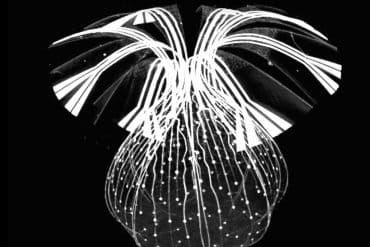Summary: Research sheds light on how to identify and manage individuals termed ‘corporate psychopaths’ within the business realm.
These individuals, making up roughly 1% of adults, lack emotions such as guilt or empathy but often rise to leadership positions due to their charismatic traits. They present significant threats to businesses, sectors, and even entire economies.
Warning signs to detect their presence include superficial charm, rationality, lack of remorse, and emotional shallowness.
Key Facts:
- 1% of the adult population are psychopaths, lacking emotions like guilt or empathy.
- Corporate psychopaths can pose significant threats to companies, sectors, and economies.
- Warning signs of corporate psychopathy include superficial charm, rationality, lack of remorse, and emotional shallowness.
Source: Anglia Ruskin University
Findings from research to help the business world identify destructive ‘corporate psychopaths’ will be presented at the Chelmsford Science Festival on Monday, 23 October.
Dr Clive Boddy of Anglia Ruskin University, a pioneer in the field of corporate psychopathy, will discuss his research, published in the International Journal of Market Research, looking at how the financial industry can identify, manage and, if necessary, remove these individuals.
Around 1% of the adult population are defined as psychopaths, meaning they possess no conscience, shame, guilt, or ability to experience love for or feel empathy towards other people. Dr Boddy will discuss how they appear as potentially effective leaders, how they get to the top and what they do once they have achieved leadership.
The term corporate psychopath refers to well-performing psychopaths who work in corporate and political settings. According to Dr Boddy, they present a huge threat to the stability of companies, sectors, and potentially entire economies.
During his talk at the Chelmsford Science Festival, Dr Boddy will discuss the warning signs that researchers and investors in the financial industry, such as pension funds, and in other sectors, can look for. These include superficial charm and intelligence, pure rationality, a cheating personality, lack of remorse, irresponsibility, and being emotionally shallow.
Dr Boddy, Deputy Head of the School of Management at Anglia Ruskin University (ARU), said: “It is possible to look back with hindsight at some individuals in history that have committed crimes or destabilised industries, and be wise after the event.
“However, industries, particularly in the influential financial sector have an enormous responsibility to be more vigilant in spotting these individuals and ensuring they cannot endanger our economy and wider society.
“We know that corporate psychopaths are disproportionately likely to hold very senior positions in business and industry, largely because of their apparently social personality traits.
“However, their ruthlessly self-serving behaviour has the potential to bring down entire sectors in extreme cases. The quest for money, power and control is what drives the corporate psychopath, and they are ruthless and efficient in gaining these.
“My talk will explain what makes these individuals tick and how to identify them before they cause serious damage. Being able to identify these individuals could also play an important role in informing investment decisions. Firms without corporate psychopaths in them are more likely to be viable, sustainable, and less likely to collapse.”
The week-long Chelmsford Science Festival, organised by Anglia Ruskin University (ARU), will take place from 18-24 October and include a variety of free talks, exhibitions and events on all aspects of science.
About this business neuroscience and psychopathy research news
Author: Jamie Forsyth
Source: Anglia Ruskin University
Contact: Jamie Forsyth – Anglia Ruskin University
Image: The image is credited to Neuroscience News
Original Research: The findings will be presented at the Chelmsford Science Festival.








